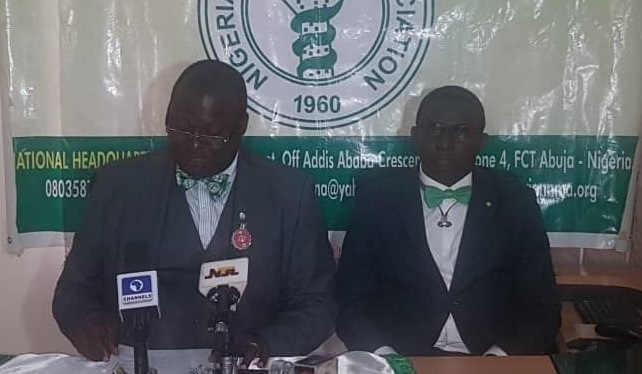Nigeria Medical Association (NMA) has decried inadequate cancer reportage and legislation and called for laws to curtail environmental carcinogens in the country.

The association made the call in a communiqué issued by Dr Francis Faduyile, NMA President, at the end of its National Executive Council (NEC) meeting on Tuesday, December 18, 2018 in Abuja.
It said that exposure to tobacco smoke and industrial pollution and poor enforcement of existing laws on cancer control and limited diagnostic and treatment facilities added to the risk of cancer.
The association also said that the high cost of managing cancer patients and the exclusion of cancer treatment in the National Health Insurance Scheme remained the main factors responsible for increased incidence and burden of cancer in Nigeria.
It decried inadequate budgetary allocation to the health sector and the neglect as well as poor funding of various cancer registries and cancer research in the country.
The association, however, called on governments at all levels to institute effective cancer prevention and control strategies aimed at reversing the rising incidence of cancer.
It described cancer as a major killer in Nigeria.
The association said it had a significant role to play in promoting the health of Nigerians, particularly to accelerate the implementation of Sustainable Development Goals (SDG 3).
It implored governments to create a conducive environment for multi-stakeholder partnerships through good governance, transparent public institutions and the rule of law in refreshing the SDG 3.
The association noted that health insurance had the capacity to provide solution for accessible, affordable and sustainable health delivery for Nigerians.
It said the State Health Insurance Schemes lacked the necessary determinations for success as major stakeholders were not consulted before their take-off.
The association decried the recent outbreak of yellow fever in some states and noted that the country had been experiencing sporadic outbreak of yellow fever since September 2017.
It appealed to governments to ensure that yellow fever vaccine was readily available for immunisation of all Nigerians, especially at the epidemic zone.
It called on agencies involved in curtailing epidemic viral haemorrhagic diseases as well as yellow fever to work swiftly to curtail the spread and prevent further outbreaks of the diseases in the country.
By Ummul Idris
